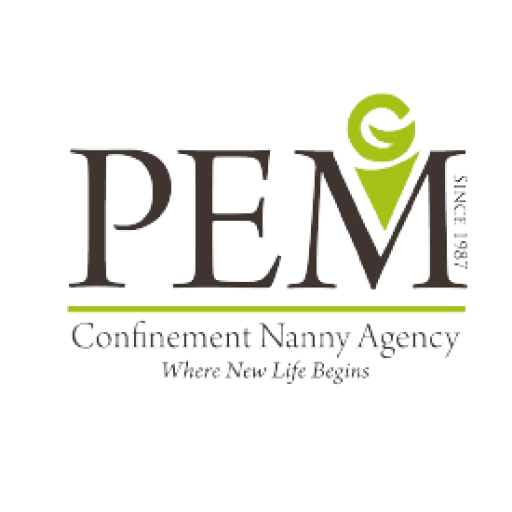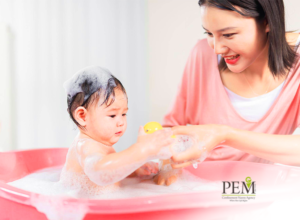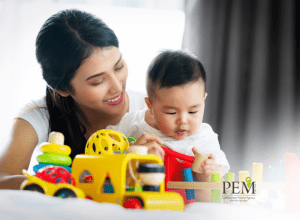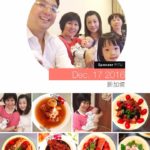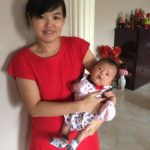[email protected] ♦ (+65) 6293 9249 ♦ Mon - Sun : 10:00AM - 7:00PM
Chinese Confinement Practices: Purely tradition or do they really help mothers with recovery?

Postpartum confinement is a crucial period where mothers are advised to stay ‘confined’ to their house and resting as much as possible – aside from attending to their newborn. Certain practices can make this period a lot more convenient and restful for the mom. During confinement, nutrition is a cornerstone of the practice, as eating nutritious foods is believed to help the mother’s body heal and regain balance. Mothers and their babies are usually taken care of by other women, family members, employed nurseries, trained in the preparation of special meals with Chinese herbs. Albeit being confined to the home, they get to focus on healing and being served proper healing meals.
On the contrary, there are many traditional postpartum confinement rules that can be deemed as too restrictive or too difficult to adhere to, such as not being able to wash your hair during the whole confinement period. New mothers are also advised to not be exposed to cold air or fan during this period, which is especially tough to do in a humid country like Singapore.
So, are confinement practices like these really beneficial for postpartum mothers?
Historical Background of Confinement Practices
According to Chinese history, the Chinese medical practice of postpartum confinement was developed as an antidote to tackle unhealthy blood, excessive crying, and postpartum bleeding. The practices are mainly developed to help cleanse maternal blood and allow your body to recover faster. New mothers are not to expose their bodies to cold water or shower during this period as it is believed to be more prone to catching ‘wind’, which can result in issues like weakened joints and headache. This traditional approach, of course, has greatly evolved over the centuries.
The Benefits of Confinement Practices
Put simply, the Chinese confinement practices are meant to promote smoother postpartum healing. Research has shown that traditional confinement practices can have a positive impact on both the mother and the baby. New mothers who have the chance to practise confinement practices are likely to stay in bed for much longer, thus they are able to rest and relax during the postnatal recovery period.
This is especially beneficial for first-time mothers who may find the adjustment to parenthood to be difficult. The Chinese confinement practices like douching and wearing a cotton mask to prevent any skin-to-skin contact are also beneficial for the mother. In addition, there is no pressure from the family members to stand up or get out of bed at a certain hour of the day. This is also one of the many reasons that a mother could use some support by engaging confinement services to get some help around the house.
As mentioned earlier, confinement is a period where nutrition plays a crucial role to boost a mother’s recovery. There are common confinement herbs Singapore moms would be served with that can be found at a typical herbal store. Finding them is one thing, preparing dishes with them is another. At PEM Confinement Nanny Agency, our nannies are professionally trained to be able to cook up a wide selection of confinement meals with the use of various nutrient-dense ingredients to boost mothers’ healing.
Modern Day Confinement Practices
Although we can’t go back in time to study the tradition, we are now seeing modern practices for postpartum confinement to suit modern needs and lifestyles. There are women who choose to restrict their environment and be isolated from their families and society, such as staying inside their home during the confinement period.
However, we have also seen postpartum mothers who are completely fine to be out and about within days or weeks after birth. Women who have full-time jobs have their own office would attend office events, social gatherings, and even exercise far earlier than the end of confinement period. It is also not unusual to see young mothers in their 20s and 30s holding and breastfeeding their babies with no visible signs of discomfort.
As far as the general rules of keeping themselves warm, not exposing their bodies to cold air for too long, and reducing time in the shower, many are still practising them without placing too much stress on them. Conveniently, there are now confinement bath package and other supplies that come in packets to ease modern mothers who wish to still adhere to confinement practices. Products like these would be helpful in making the confinement itself feels less daunting to postpartum mothers nowadays.
Conclusion
A lot of experts question the practice of confinement as a means to help mothers recover from the natural birth process and ensure a safe and healthy recovery. Many agree that the practices can bring opposite effects than what was intended, and might instead hinder the recovery process.
If all mothers are required to stay inside the house for prolonged periods of time, it can potentially lead to mood swings and sleep deprivation for those who are not used to or fond of this practice. This could be a trigger for postpartum depression in some women. Not to mention, there are many people who are not familiar with the traditional postpartum confinement practices so trying to practise them for the first time after birth can be stressful.
Regardless, there are also still many others who believe in the efficacy of such traditional practices and to whom doing them would make more sense than completely abandoning them. As long as you are comfortable with what you do and they bring no harm, that’s all that matters. After all, no mothers experience the confinement 100% the same, and it’s YOUR postnatal recovery to decide.
